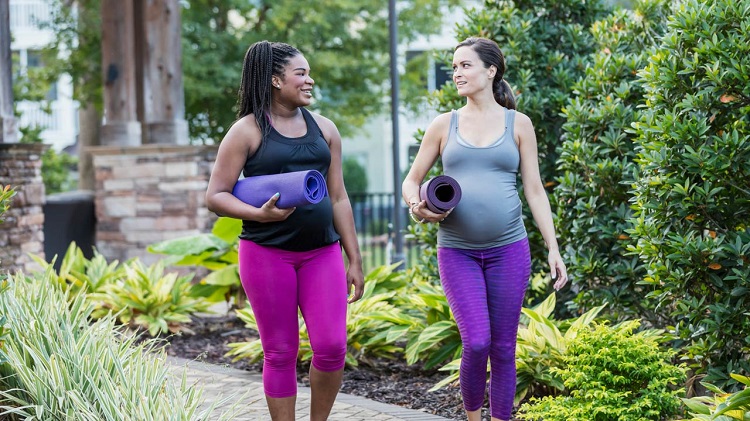 English
English

Research from the University of Alberta indicates that high-intensity interval training causes no harm to expectant moms and their unborn children. Read further on Dynamite News:

Alberta: Contrary to conventional exercise advice for pregnant women, fresh research from the University of Alberta indicates that high-intensity interval training causes no harm to expectant moms and their unborn children.
The program for pregnancy and postpartum health master's student Jenna Wowdzia's study examined the cardiovascular effects of moderate-intensity continuous training against high intensity interval training on the mother and fetus.
“What was novel about this study is that we were looking at how the baby responded to high intensity exercise,” says senior-author Margie Davenport, a pregnancy researcher in the Faculty of Kinesiology, Sport, and Recreation. “We looked at responses in terms of the fetus’s heart rate and also the blood flow that was going to the fetus, so we can see if they were getting enough blood flow, oxygen and nutrients.”
High-intensity interval training is a top fitness trend, Davenport notes, with a growing number of people interested in continuing this type of training during pregnancy.
For the study, high-intensity exercise was done through 10 one-minute bouts of interval workouts above 90 per cent of maximum effort with one minute of active recovery.
Moderate-intensity exercise was measured with a 30-minute workout.
Davenport previously led the development of the 2019 Canadian Guideline for Physical Activity During Pregnancy for the Society of Obstetricians and Gynecologists of Canada and Canadian Society for Exercise Physiology.
To develop the guideline, Davenport surveyed all available literature to look at whether exercise during pregnancy is safe and beneficial for both mother and baby.
“With those systematic reviews and with those guidelines we actually found really impactful information,” says Davenport. “Engaging in physical activity and exercise during pregnancy is associated with a 40 per cent reduction in the risk of developing major pregnancy complications such as gestational diabetes, pre-eclampsia and gestational hypertension, and there is no negative impact on the baby.”
Early small-scale studies that suggested longer-duration progressive exercise to maximal levels had some potential adverse effects led to a broad recommendation not to exceed 90 per cent of maximal exercise at any point during pregnancy, said Davenport. (ANI)